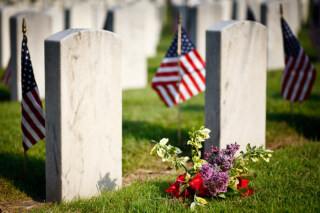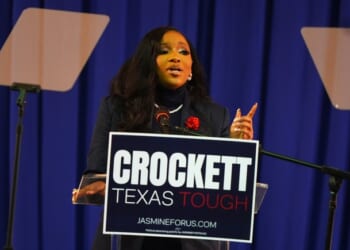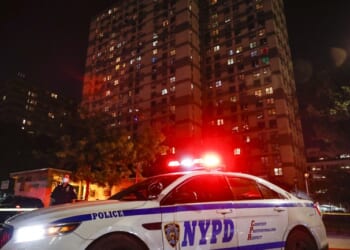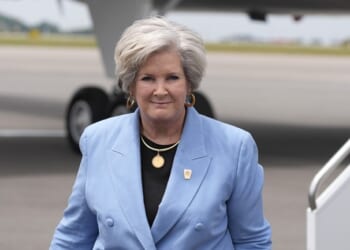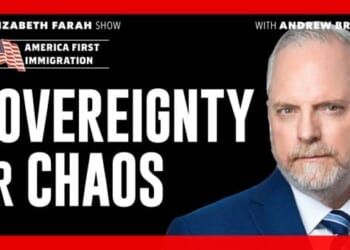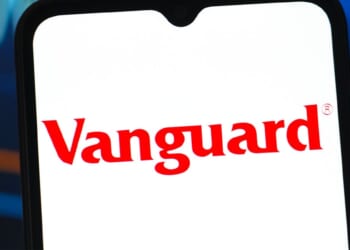
Source: Bigstock
On the eleventh hour of the eleventh day of the eleventh month, the guns fell silent, and the world exhaled. It wasn’t peace so much as exhaustion. Twenty million dead, an old order blown to pieces, and a new one sketching itself in bureaucratic ink. In London and Paris, they danced. In Vienna and Berlin, they starved. Amid the mud of Flanders, a young Canadian, Pvt. George Price, was shot through the chest two minutes before the Armistice took effect—the last Allied soldier to die. An American, Pvt. Henry Gunther of Baltimore, fell a minute earlier—the last American to be killed in the war—charging a German machine gun whose crew were shouting at him to stop. Both men died within sight of peace, punctuation marks at the end of a sentence written in blood.
Remembrance Day—in the Commonwealth, or Veterans Day to Americans—was born of that silence. Versailles promised “never again” but guaranteed another bloodletting two decades later—a blood pact, not a peace. At Versailles, Woodrow Wilson’s idealism and French vengeance combined to redraw the world. The League of Nations was born, Germany was bound in economic chains, and the British Mandate system quietly laid the first stones on the road to Israel. What fell that November morning wasn’t only the German Empire but the entire architecture of Christendom: Austria-Hungary dissolved, the Tsar and his family executed in a cellar, and the ancient Christian communities of Anatolia driven out or destroyed. In their place rose the modern managerial state—rational, technocratic, and godless. It was not the rebirth of freedom but the enthronement of systems. For Americans, it marked the hinge between republic and empire. For Europe, civilizational suicide. And for Canada, Australia, and the rest of the Commonwealth, the baptism of nations in other men’s mud.
“The tragedy of Remembrance Day is that it memorializes a world that no longer exists.”
That moment is still what Remembrance Day commemorates, though we now speak of it as if it were a tragic inevitability—a kind of moral weather event. The bugles sound, the wreaths are laid, and the cameras capture it all in reverent high definition. Yet beneath the choreography lingers an unease that the old bargain has curdled. It surfaced this week in the person of Alec Penstone, a 100-year-old Royal Navy veteran of the Second World War, who appeared on Good Morning Britain for what the producers assumed would be a pleasant interlude of patriotic nostalgia. Instead, Penstone, with the calm of a man who has outlived diplomacy, detonated the segment. Asked what Remembrance Sunday meant to him, he looked straight into the camera and said: “My message is, I can see in my mind’s eye those rows and rows of white stones, and all the hundreds of my friends who gave their lives—for what? The country of today? No, I’m sorry—but the sacrifice wasn’t worth the result of what it is now.”
Cue the sound of studio jaws hitting the floor. Presenter Adil Ray pressed him to explain, as if he’d uttered heresy on live television. Penstone, gentle but unbending, said what many veterans think but seldom voice: that the “freedom” they fought for has been replaced by something cold, bureaucratic, and unfree in all but name. Cohost Kate Garraway hurried to console him, insisting that “all the generations since” were grateful, but the pathos of the moment was that they both knew it wasn’t true. Gratitude has become performance art: red poppies pinned beside rainbow badges. The irony, unspoken but glaring, was that Penstone’s dissent came under the gaze of the same Adil Ray who, only days earlier, had been summoned before ITV bosses over social media posts praising the new Muslim mayor of New York, Zohran Mamdani. In that post, Ray mused that Mamdani “might implement Sharia law,” before assuring readers that “the heart of Sharia is social justice, fairness, charity and cohesion.” It was a remarkable gloss from a man appalled by a veteran’s loss of faith in modern Britain—proof, perhaps, that one need not fight for a civilization to lecture those who did.
The poppy itself came from “In Flanders Fields,” written in 1915 by the Canadian officer John McCrae after watching a friend die at Ypres. Its simplicity hides its desolation: “In Flanders fields the poppies blow/Between the crosses, row on row…” The flower grew where the shells had churned the soil, nature’s requiem, crimson with the blood of boys who’d barely learned to shave. McCrae’s closing exhortation, to “take up our quarrel with the foe” and “hold the torch high,” became a kind of secular creed for a generation that mistook endurance for redemption. The torch was duly passed to another generation, and another, until at last it began to burn holes in the very fabric of Western civilization. These days, few remember who the foe was. Fewer still can say what the torch now illuminates. We hold it high mostly out of habit, a ritual flame guttering in the wind of a faithless age.
Drive through the towns of Ontario and you’ll see banners hanging from lampposts: sepia portraits of young men—19, 20, 21—who went overseas and never came back. Their names are mostly Anglo-Saxon, Scottish, or Irish, sons of a civilization once confident. They believed they were fighting for their homes, their faith, their country. Now their faces look down on a land that scarcely resembles any of those things. In many towns, the war memorial—once the solemn centerpiece—is now ringed with fast-food litter and used as a bench by newcomers who have no idea what the carved names mean. The moral of the story, if there is one, is simple enough: Die for your country, and in return you get your name on a fancy rock, to be forgotten or defaced by the people your rulers chose to replace you with. Crude, perhaps, but as Alec Penstone reminded us, it is no longer the cynics who feel that way.
For Americans, November 11 was once Armistice Day, a commemoration of the end of “the war to end all wars.” It was later rebranded Veterans Day, a shift as telling as any in the 20th century. What began as a meditation on loss became a celebration of service. The original message was “never again”; the new one is “thank you for your service.” The republic of citizen-soldiers gave way to an empire that manufactures them. In Britain and Canada, the ceremonies endure, and politicians make solemn speeches about “sacrifice for democracy,” even as they censor dissent, jail protesters, and hand governance to unelected panels. Naturally, our betters see no contradiction.
The tragedy of Remembrance Day is that it memorializes a world that no longer exists. The men who fell in 1914 believed in things—God, nation, hierarchy, home—that their grandchildren were taught to regard as suspect, even dangerous. The pageantry remains, but the piety has fled.
In the end, Alec Penstone’s remark was less an act of bitterness than one of recognition. He looked at the country his generation bled for and saw a homeland culturally disarmed and demographically conquered—a transformation imposed from above, the kind usually reserved for defeated nations. And he dared to ask the question the rest of us only whisper in our heads: Was it worth it? Remembrance Day is meant to answer that question with solemn conviction. Increasingly, it cannot. Because to answer honestly would be to admit that something profound has been lost—not only the men, but the meaning.
At 11 a.m. we will fall silent again as the bugles sound, the politicians bow, the schoolchildren recite “In Flanders Fields.” And in that silence, if you listen closely, you may hear the faintest murmur of the old world—the one that died believing it had saved the future. The guns have been silent for a century now. The question is whether we are.

